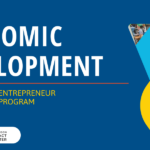–>Who: Tonee Ndungu, founder of…
–> What: …Kytabu, is aimed to revolutionize the way education is delivered in Kenya through a textbook subscription application for a low-cost tablet.
–> How: Listen to this interview, learn more about Kytabu, and follow Ndungu on Twitter (@ToneeNdungu).
(Subscribe to all our audio content on iTunes)

On her journey to spotlight the people and organizations that are making the world move in new and exciting ways, Sonia Chokshi talks to Tonee Ndungu, founder of Kytabu and a finalist of the SOCAP’12 Impact Accelerator.
In Kenya, 45% of families’ disposable income is spent on education, and half of that amount is dedicated to buying textbooks alone. Although primary education is free for all children, textbook companies report only 19% penetration in the student market, meaning that four out of five children (approximately 7.5 million in total) attend school without the actual material needed to learn. As Ndungu explains, the problem isn’t access, it’s delivery.
And that’s exactly what Kytabu is trying to solve. The textbook subscription application holds digitized copies of all the textbook materials that students need in the classroom and is loaded onto a tablet that costs only ten dollars. Through the app, students can rent a page, chapter or entire book for an hour, day, week, month, or year. Combining these common “sachet”-sized purchases with widely used mobile payment methods ensures that this innovative technology fits within Kenyans’ current consumption habits. This way, families do not have to sink in large upfront costs, instead paying what they can, when they can.
To ensure product success at a low cost, Ndungu is working closely with mobile providers and textbook companies to create both a synergistic economic partnership and a collective social impact. The mobile providers are subsidizing tablet costs and the textbook companies are digitizing content – all to reach this untapped and underserved market.
In the long-run, Ndungu envisions using this tablet technology as a springboard to shift the pedagogical and learning experience from an individualized pursuit to a collaborative and collective effort. Citing a fellow SOCAP attendee, Ndungu argues, “If we can’t learn the way we teach, let’s teach the way we learn.”
Learn more about Kytabu, and follow Ndungu on Twitter (@ToneeNdungu).
This article is a part of a series produced at SOCAP12 by New Empire Builders. New Empire Builders is a SOCAP12 media partner.




